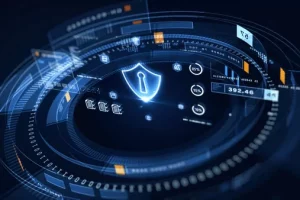Security Operations Center in Cybersecurity
- Posted by 3.0 University
- Categories Cyber Security
- Date August 6, 2024
- Comments 0 comment
Discover the realm of Security Operations Centre (SOC), and the cardinal role it plays in the cybersecurity architecture of any firm.
They will explain the efficiency of the above-mentioned measures by actually focusing on an airline company’s supply chain security model.
In this day and age, the rapid development of cybercrimes and their related threats is the most crucial issue. However, the safety of devices and services, whether in the cloud or otherwise, has evolved from a privilege to an indispensable element.
The reason for a ray of hope for cyber security is that only the Security Operation Centre (SOC) gates are the last standing blocks before the invader.
The latter could include a variety of examples of SOC fields and their relevance to the banking industry, or a diverse set of SOC domains and their related importance in the financial sector.
What is the Security Operation Centre (SOC)?
Professionals in the Security Operations Centre (SOC), a distinct department, monitor and evaluate threats.
Threat detection and analysis are the primary responsibilities of the specialists.
Their duties, therefore, include safeguarding sensitive information from cyber threats around the clock, backing up data, and keeping data inactive from unauthorized access.
Why SOCs Are Essential in Today’s Cyber Landscape
You can hardly imagine that only one data breach occurred in 2020. The incident resulted in the loss of 36 billion entities. Each leakage usually requires a total annual cost of $3.86 million.
These figures demonstrate the urgent need to monitor cyber threats, and prompt action is crucial for ensuring data safety.
SOCs continuously scan the systems, identify vulnerabilities, and manage the risks to achieve this.
Must Organizations Have Log?
Management and the SOC Team
Log management is a carefully designed method to process large volumes of computer log data.
It permits various operations on data, including creation, collection, centralization, parsing, transmission, storage, archival, and disposal.
Companies require a Security Operations Centre team and a log management solution for the following:
1- Adhere to the obligatory guiding requirements, viz. PCI-DSS, HIPAA, and RMiT, ISO 27001, among others.
2- Safeguard the servers that contain sensitive data from being attacked both from inside and outside the company.
3- Defend sensitive data and intellectual property.
4- Besides log the Security Operations Centre (SOC) managing analysts may also be engaged in the implementation of Security Information and Event Management (SIEM) tools in their respective operations.
5- SIEM tools are software packages that assist in incorporating data from different security sources such as network devices, servers, and multiple locations into a single spot.
Next, they scan for patterns and attach them to security threats to help entities to deal well with the identified incidents. (Data Courtesy: EC Council)
SOC’s Core Functions
Continuous Monitoring
A SOC’s main task is to monitor the entire network of an enterprise to find and report any suspicious traffic.
This implies collecting data from different sources, which can be firewalls, intrusion detection systems, and network devices.
Incident Response
Upon the occurrence of any possible threat, the personnel in charge of the SOC will carry out activities that will very quickly help ease the consequences if any possible threat arises.
The list of activities also includes the isolation of infected systems, the cleansing of any malware, and the return to normal operating mode.
Threat Intelligence
To detect emerging threats from hackers, SOC teams use threat advisories in cyber security software.
Based on their knowledge of the techniques, methods, and procedures used by hackers, they stage their defensive countermeasures.
Compliance Management
Another main role of SOCs is to assist companies in meeting these regulations’ requirements.
One example is the implementation of technical controls that comply with regulations such as PCI-DSS, HIPAA, and ISO 27001 that companies must follow in their businesses.
Furthermore, SOCs assist companies in adhering to these standards in such a way that they avoid legal liabilities and protect their security.
Industries That Rely Heavily on SOCs
Healthcare
Cyberattacks primarily target the healthcare sector, which handles patients’ confidential data.
Protecting patient data is crucial due to its delicate nature, which is why cyber attackers often target the healthcare sector first.
Implementing a managed care process in everyday society is still an original idea for both patients and healthcare providers.
The hospital or clinic will most likely only achieve HIPAA Act compliance if they adopt this system.
High-quality content adheres strictly to all provided instructions, with a strong focus on all.
Financial Services
Due to the vast volume of data and its sensitive nature, financial institutions are mostly the target of the attacks.
SOCs play an important role in assisting with sensitive data and acting as a source to counter threats and fraud.
SOCs then defend systems against these attacks, helping organizations secure transactions and customer data.
The Future of SOCs: Adapting to Emerging Threats
These tools help predict and prevent attacks more efficiently, so SOCs are staying one step ahead of cybercriminals.
Last but not least, the Security Operations Centre (SOC) has emerged as a vital segment of the most solid cybersecurity regime.
This way, the SOCs improve the situation by providing proper monitoring, responding quickly to incidents, and enforcing regulatory compliance, which means the organizations are safe from cyber-attacks.
The threat of cyber increases as we bring in technologies. (Source Courtesy: EC Council)
Stay tuned for our next article on more of such industry-wise analysis, in sequence.
If you’re looking for an Ethical Hacking Course or a cybersecurity online certification course, register now at 3.0 University.
You may also like

Firewalls & Future of Cybersecurity Careers in 2025


